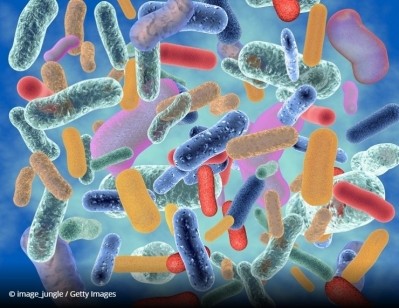Nutrigenomic data use in personalised nutrition a matter of time, study suggests

The research team from Denmark, Finland and Australia think that the work on fruit fly strains (Drosophila melanogaster) can be applied to individuals of a same population and their ability to survive on different diets.
“Unexpectedly we found that the fruit fly strains differed considerably, for example, in their ability to survive on a high-sugar diet,” explains Essi Havula, study lead author and now a postdoctoral researcher at the University of Helsinki.
“What makes this particularly surprising is the fact that the food consumed by fruit flies in nature contains a lot of sugars.
"The genes that regulate metabolism have been conserved in evolution, which is why we can learn a lot about human metabolism through studies carried out with fruit flies," adds Havula.
Dietary recommendations
The findings can also be applied to humans in which the research team believe is evidence that dietary recommendations do not necessarily suit everyone.
One possibility id the idea that personalised direction could be developed further with the aid of nutrigenomics.
"Hopefully, in the future type 2 diabetes and many other metabolic diseases can be treated with nutritional planning based on knowledge of individual genomes,” explains Havula.
“This would be considerably less expensive than drug therapies as well as better for the health of individuals in the long run.
The potential of nutrigenomics is not limited to the treatment of traditional metabolic diseases.
"For example, cancer cells are known to alter their metabolism, extending the potential of nutrigenomics to a wide range of fields"
The scientists began by using a genetic reference panel consisting of around 200 closely related fruit fly strains of Drosophila melanogaster.
The flies were fed six different diets containing high concentrations of protein, sugar, starch, coconut oil or lard, or a combination of sugar and lard respectively.
The strains used in the study have had their genomes fully mapped, which made it possible to link the differences seen in the experiments to specific genetic variation.
The study found that small genetic differences affected the flies' ability to use the energy of various nutrients.
Genetic analyses revealed genes that contributed to the ability of flies to tolerate sugar. Some of these genes are also found also in humans and may play a role in obesity and type 2 diabetes.
Difficult and expensive
Human studies have identified loci contributing to these complex human conditions. However, the majority of loci identified show very modest effects on disease phenotype.
Additionally, they can be difficult and expensive to verify experimentally in higher model systems.
With the exception of monogenic diseases, the development of disease is a result of a complex interplay between various genetic and environmental factors.
However, most studies that attempt to map the genetics of complex disease rarely take the environment into consideration.
The gene-by-environment interactions may partly explain the inability to detect mutations that account for the majority of T2D in humans because most association studies do not take environmental diversity into account.
Despite the observed variation, the majority of mouse studies on T2D have been done using a single inbred strain, C57BL/6, which is known to develop greater obesity and insulin resistance than many other strains.
The predominant use of a single mouse strain in metabolic research has potentially skewed our understanding of the development of T2D and other metabolic diseases.
“Personalised nutrition as a preventive health strategy is still in its infancy,” the paper comments.
“Isolating genes that moderate an individual’s response to different nutrients will have an enormous impact on public health, with the potential to facilitate a revolution in the use of food to treat and prevent disease.
“This study moves us one step closer to this goal and informs further studies on the mechanistic basis for metabolic disease.”
Source: Nature Communications
Published online: DOI: 10.1038/s41467-022-29183-x
“Genetic variation of macronutrient tolerance in Drosophila melanogaster.”
Authors: E. Havula et al








